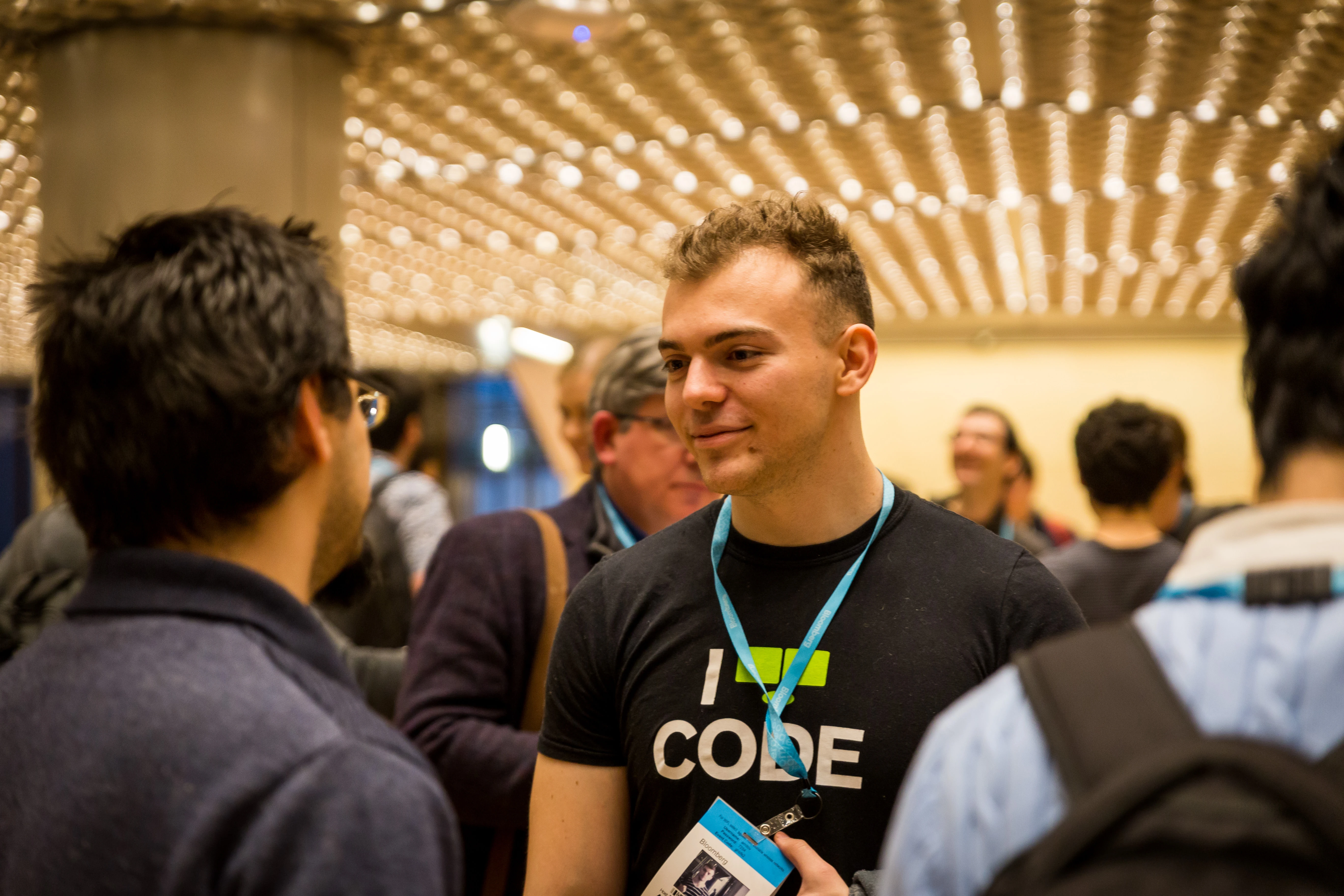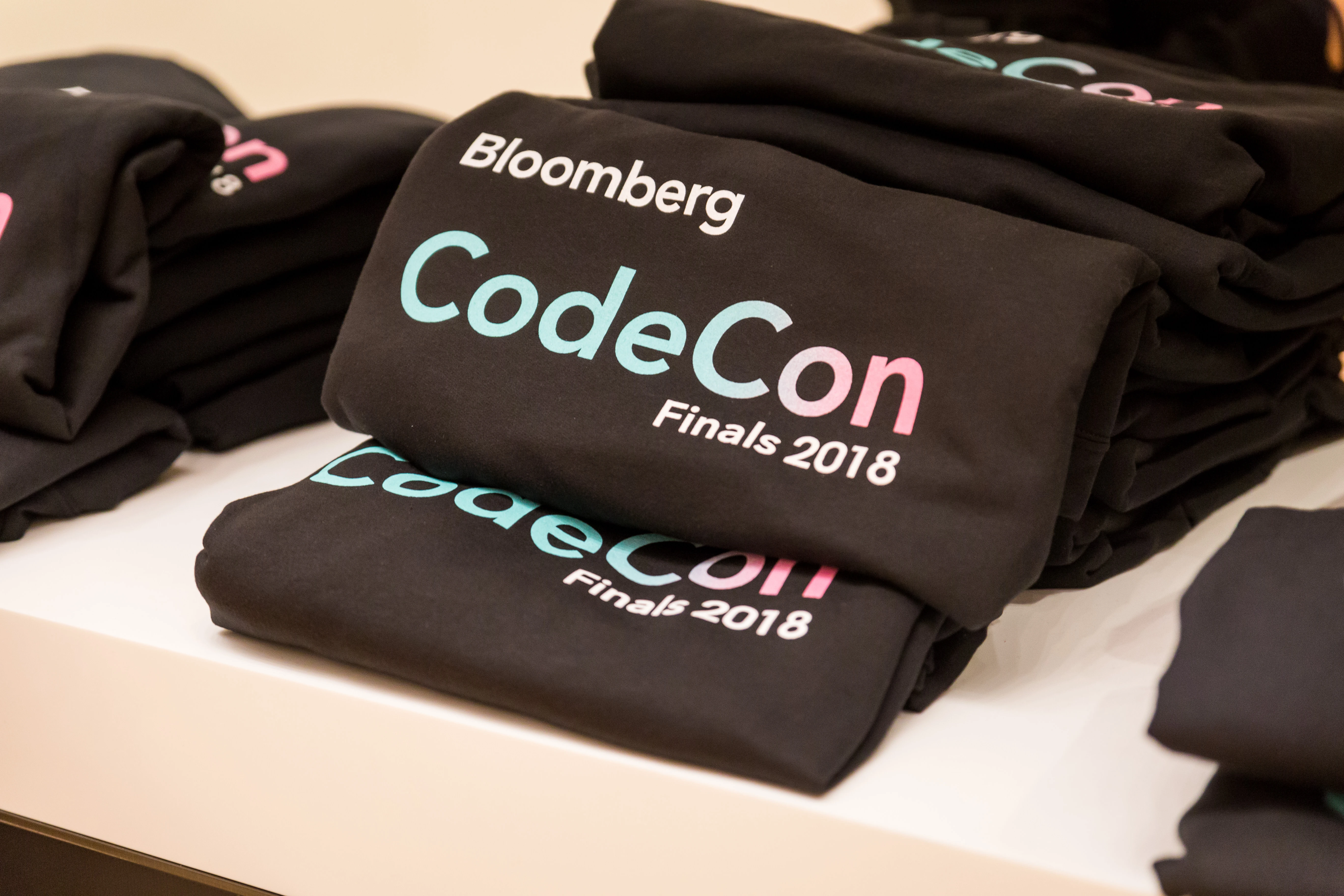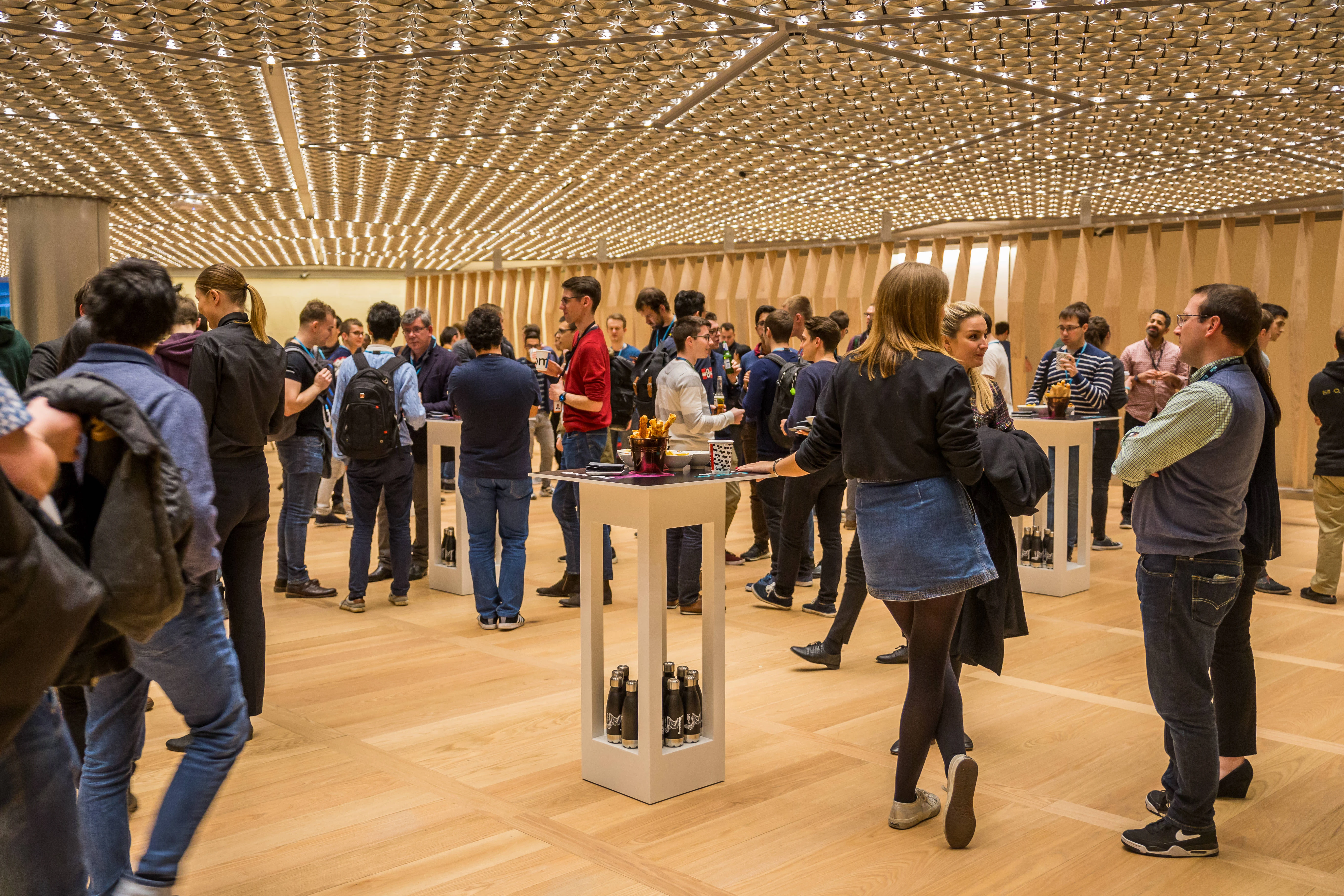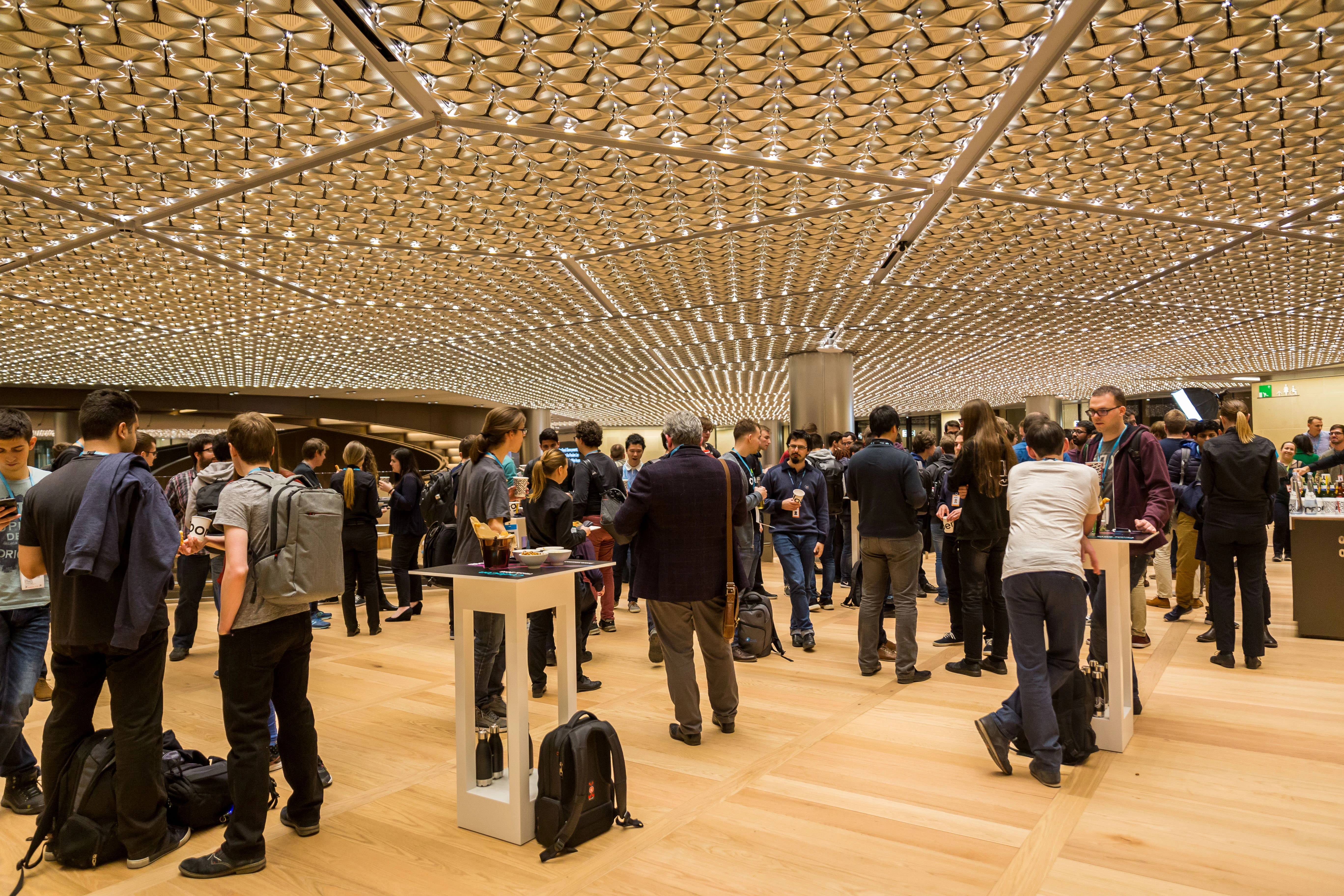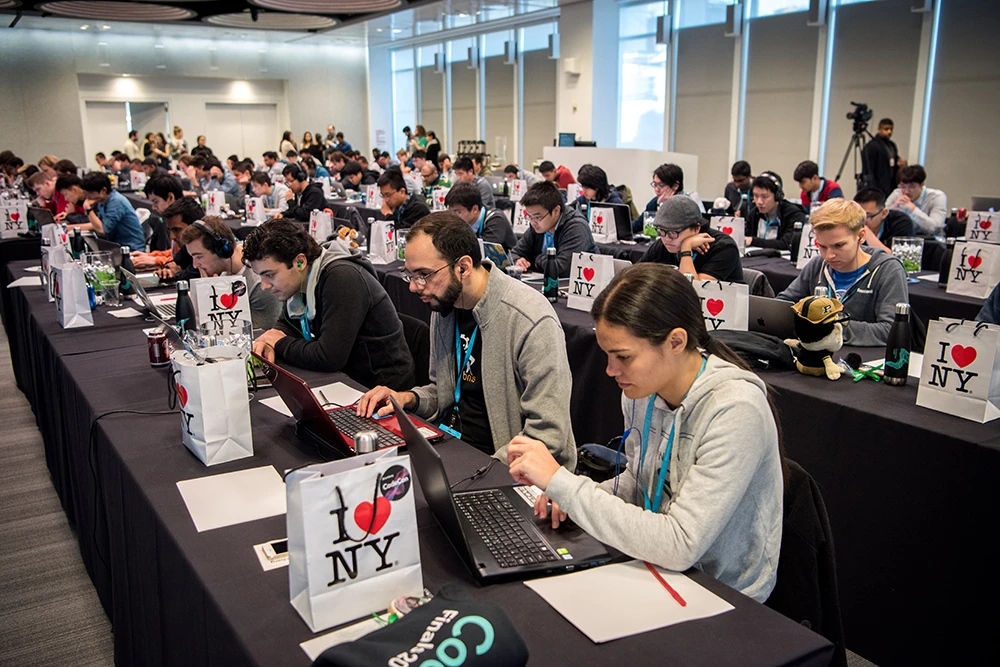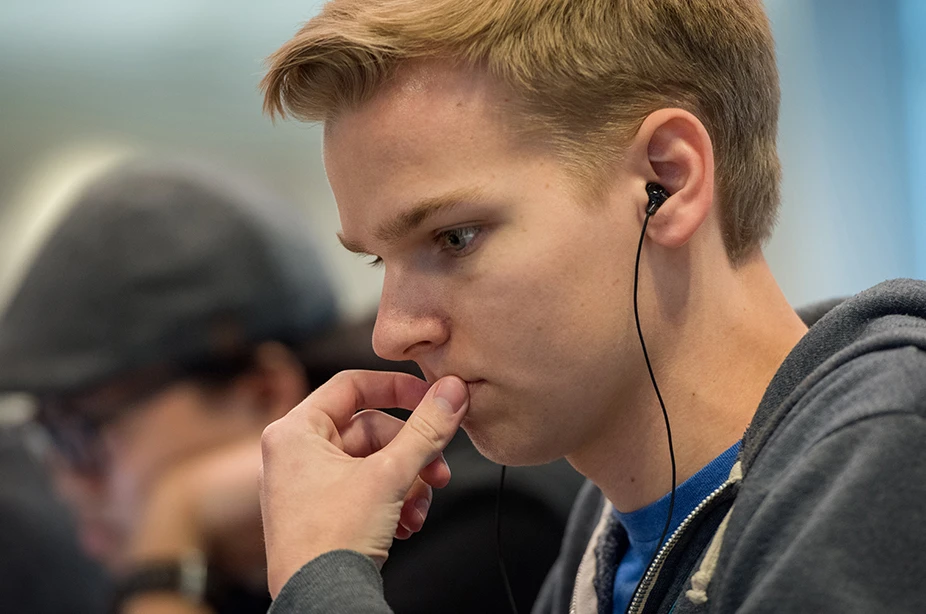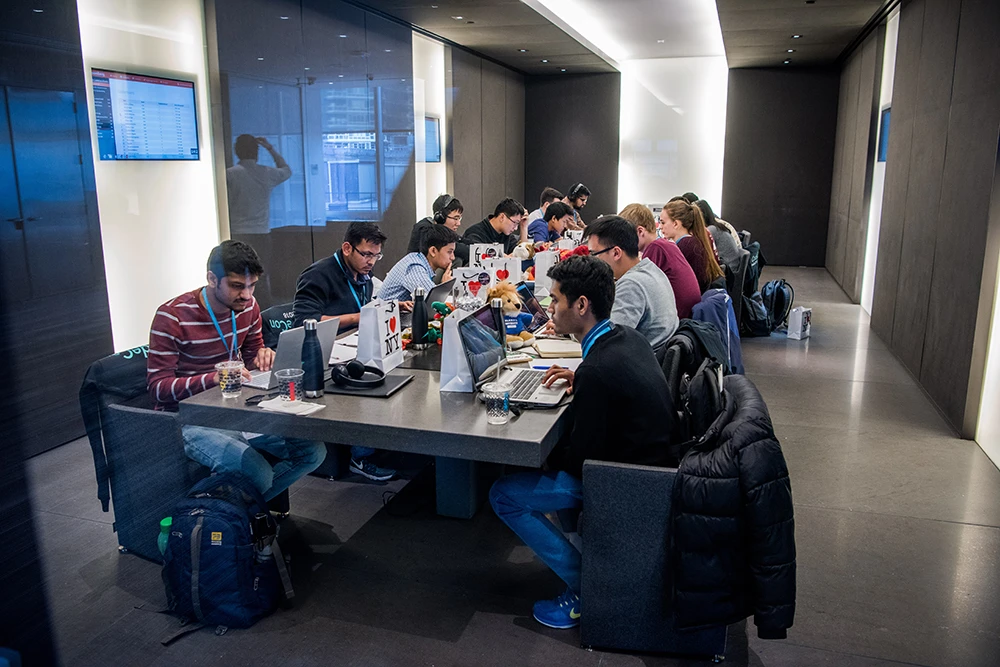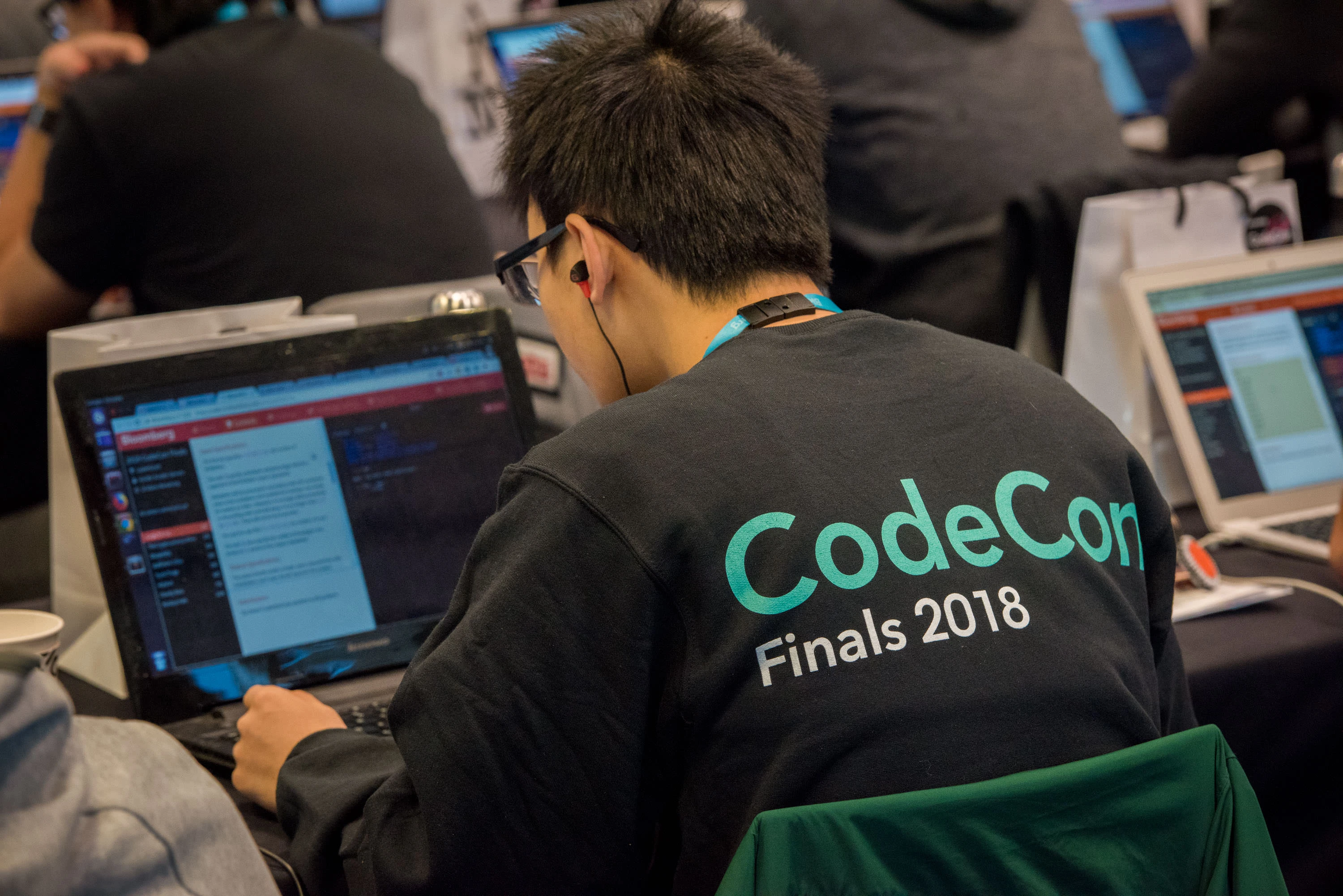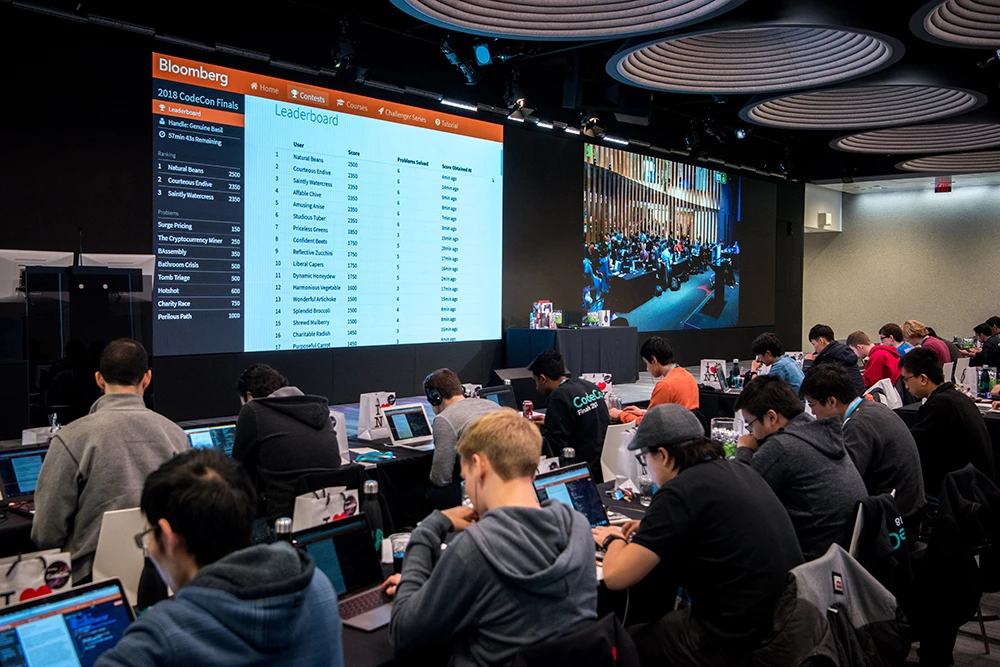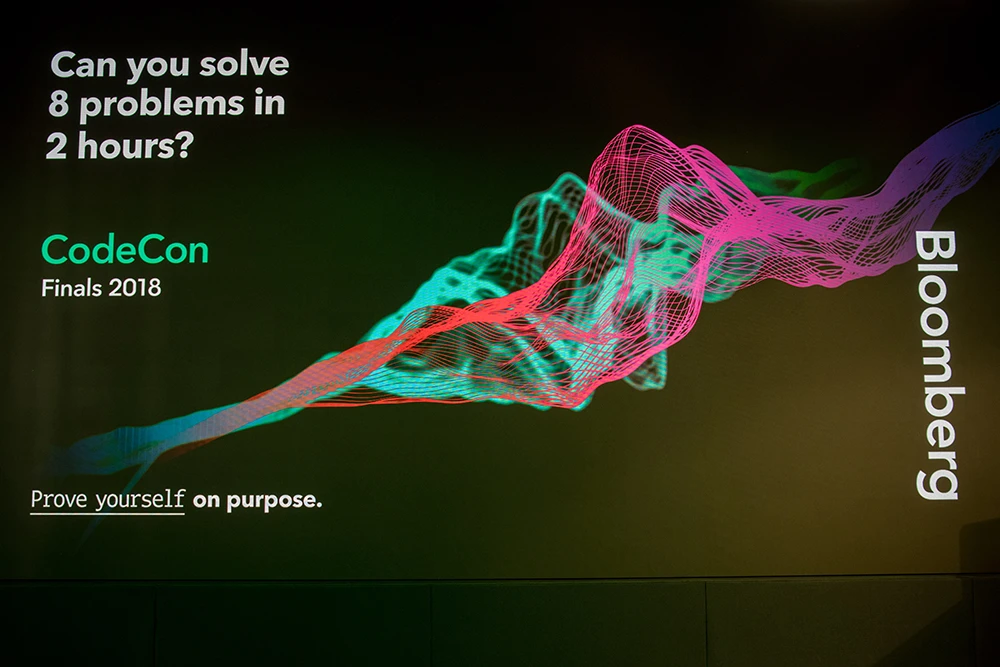Bloomberg CodeCon: Hundreds of Students, 8 Problems, and the Originator of C++
February 28, 2018
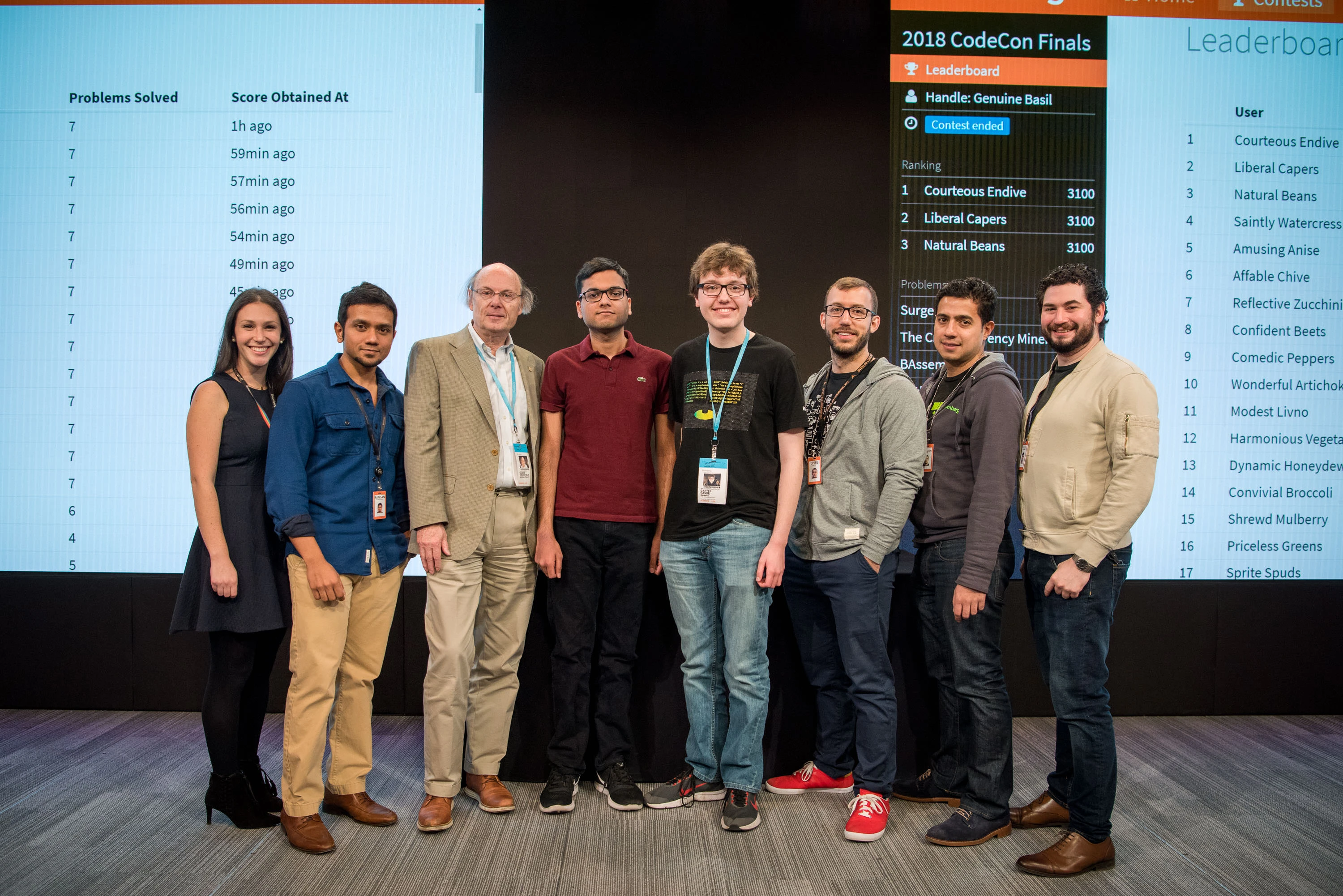

Bloomberg’s annual CodeCon Finals stands out among coding competitions. Like other such contests, it gives participants a chance to hone their coding, strategic thinking, and time management skills. But it also brings hundreds of top college coders together, giving them the chance to network, mingle, and, of course, write programs that solve a series of increasingly difficult problems (each of which is presented as a fun, interesting scenario) ‒ all in person.
“I would definitely encourage other students to participate,” says Despina Malai, a senior at the University of Essex who competed in this year’s CodeCon. “There’s nothing like CodeCon. You get to go to a physical event and meet people, and see what people are like in the industry and what other graduates are doing.”
CodeCon 2018, held simultaneously in London and New York on Friday, January 26, 2018, included 168 college students from 54 schools across the United States, Canada, Europe and the Middle East, winnowed down from more than 2,500 students who took part in qualifying competitions. As New Yorkers were just starting to think about lunch, and as Londoners headed into the evening, the coders took their seats and listened to the ground rules: The competition would last two hours. Online research was okay; collaboration with other coders was not. There were eight problems of varying difficulty. Coders could attack them in any order they wished, but the harder problems scored more heavily. Speed mattered.
Some of the participants, through earlier coding competitions, had already worked out their strategies. Xiaojia Rao, a senior at the University of Cambridge had participated in the finals before and advised would-be participants to use previous questions for practice runs. Other advice varied distinctly. University of Oxford doctoral student Karolis Kusas, another returning entrant who had come in second place before, suggested getting the easy questions done first. “It boosts your confidence, and it’s very important to get confidence early.” Maksim Solovjov, a financial software developer at Bloomberg, himself a question setter, disagreed. “I’d go for the middle ones, because it’s all about the best use of your time, and they’re more valuable.”
Others just seemed to welcome a challenge, no matter what form the results might take. Matthew Consterdine, a senior from the University of Southampton, cheerfully said he’d entered before and not done very well, loved the process, and expected not to do particularly well this go round either. Joshua Bradbury of King’s College London entered a qualifier having heard about it the day before and was equally convinced he wouldn’t win.
The students were competing on a platform called CodeCon, first conceived by Bloomberg developer Rangan Prabhakaran in 2014. CodeCon allows coding competitions to be hosted in the cloud. Importantly, the CodeCon platform is also able to evaluate code. During a contest, that ability allows students to make as many submissions as they like.
That capability is also valuable as an educational tool. CodeCon can analyze how students approach coding problems. It can isolate common mistakes and track the amount of time spent trying to solve any particular challenge.
CodeCon provides immediate feedback. That feedback is more effective, says Prabhakaran, because it comes while the students are still focused on the problem at hand. It makes it easier for them correct their path, and gives them a better chance of eventually solving the problem within a given time period. The platform’s ability to evaluate code also frees up teaching assistants to spend more time on other aspects of their classes.
Back in New York, after two hours of near-silence, the host asked, “Did you have fun?” which was met with nervous laughter.
Before the winners were announced, Bjarne Stroustrup, the creator of the C++ programming language and winner of the 2018 Charles Stark Draper Prize for Engineering, briefly took to the stage. He used his time to make a plea to students who may be wondering what a career as a developer looks like.
“Don’t get too busy getting to be a manager too soon. First, build something that lasts and then maybe then you can do something else,” he said. “I was deeply shocked, when I was at Bell Labs, when I met people who came in with a Ph.D., and among their first questions was, ‘When can I get promoted?’ Give me a break, guy, you spent 12 years getting a Ph.D. to be a scientist, and you want to be a manager? What’s the point of this?” His other advice: “If you work for a boss that won’t let you do good things or have fun, find another boss.”
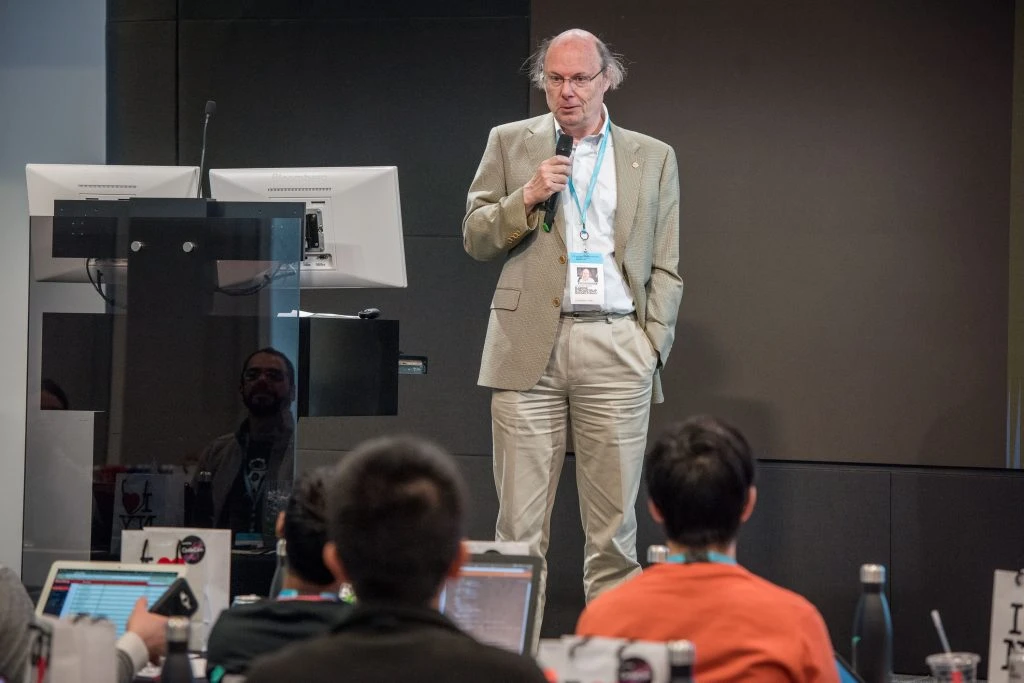
Within a few minutes of the competition’s end, there were three clear leaders, anonymized along a vegetable theme: Curious Endive, Liberal Capers, and Natural Beans. Curious Endive turned out to be the pseudonym of Carter Sande, a freshman from the University of California, Berkeley who will be interning at Bloomberg this summer. Second place went to Animesh Fatehpuria, a sophomore at Georgia Tech, who also came in second last year. The first two were announced to cheers in New York. In London, meanwhile, there was a cry from the back of the room as third place winner Natural Beans identified himself as Encho Ivanov Mishinev, a sophomore at the University of Cambridge.
There is clearly still work to be done: None of the participants successfully solved “Perilous Path,” the toughest question worth 1,000 points. In this problem, the scenario was about a spy whose cover was blown and needs to find the shortest path to a safe house before the police close in. As the first prize winner, Sande chose a Nintendo Switch, likely welcoming a shift in his attention from a hypothetical manhunt to one hypothetical plumber named Mario.
